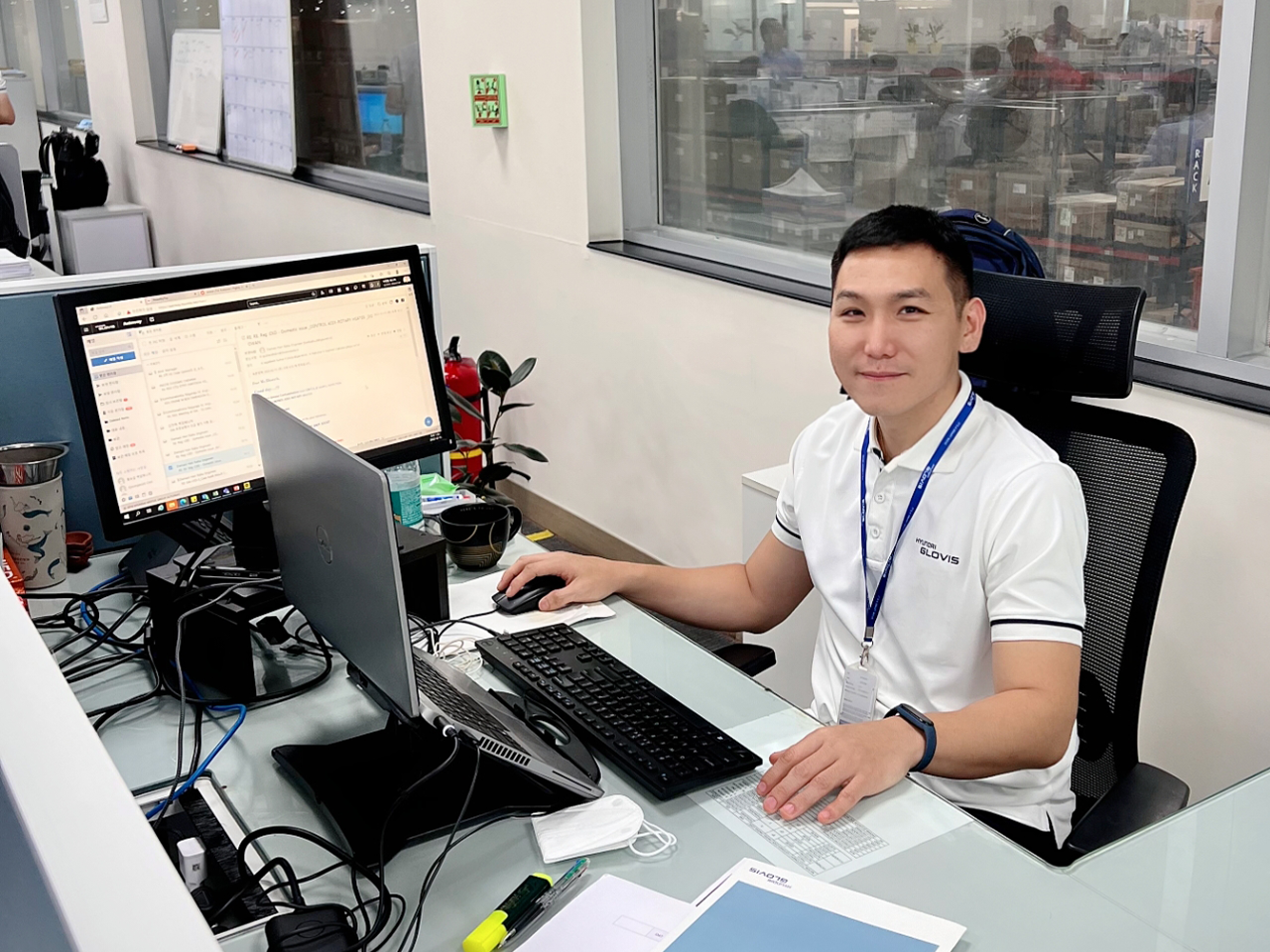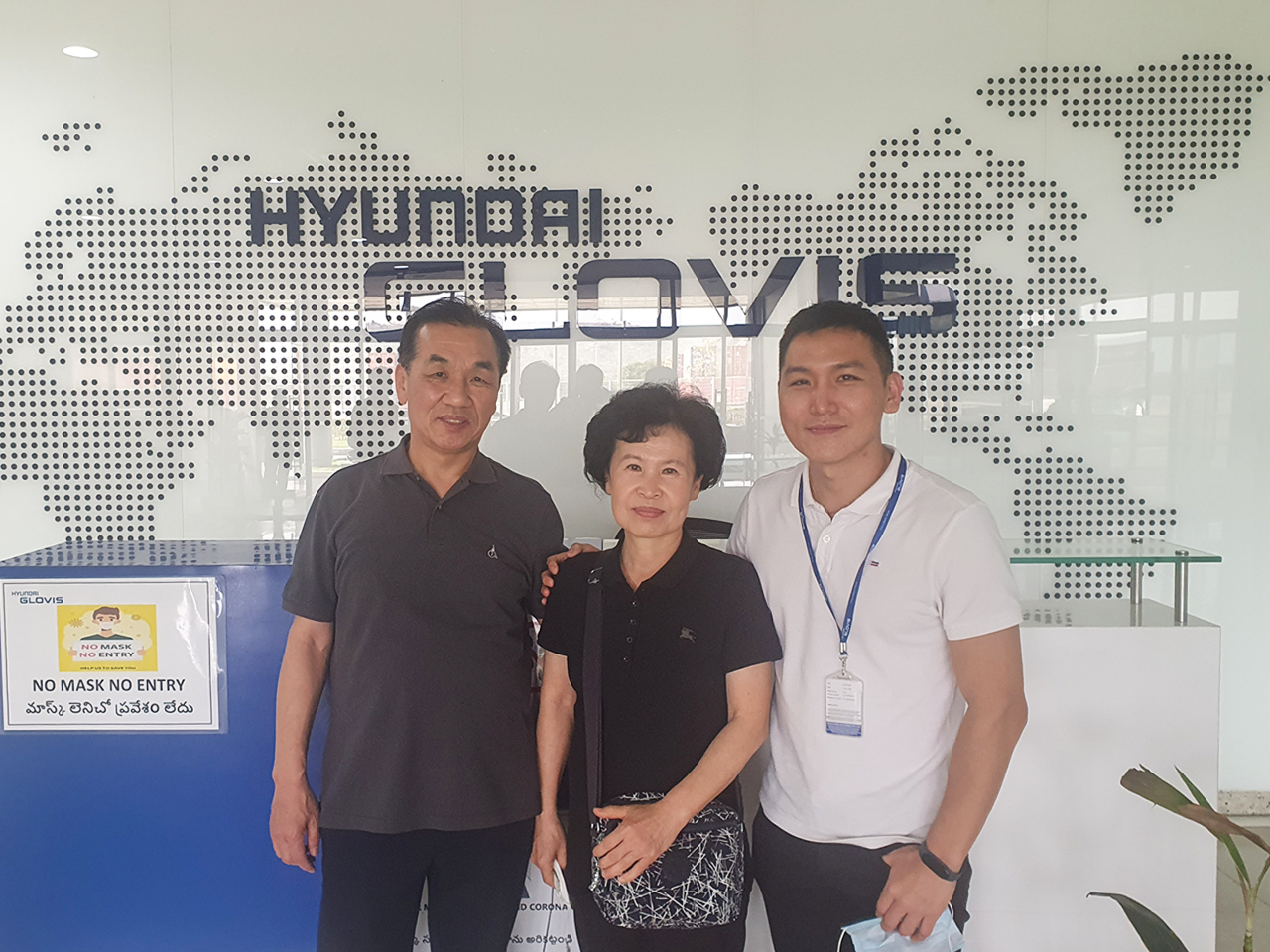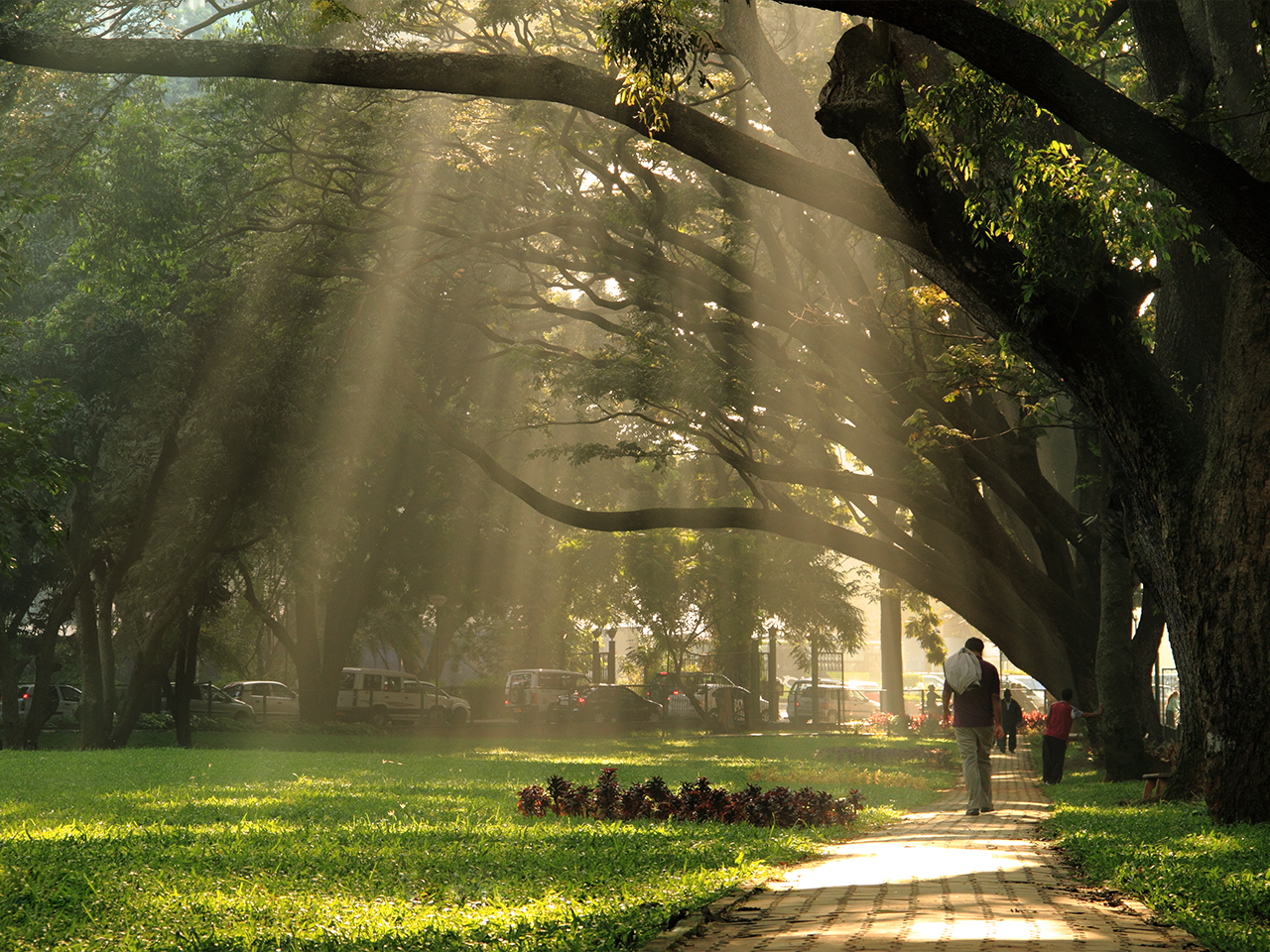India is the country of the sacred Ganges River and the magnificent Taj Mahal and is known as a land of both ancient history and unlimited economic growth. It’s no wonder Hyundai Glovis is pushing a diverse range of businesses in the exotic country. We met up with Manager Lee Jung-chul, who is stationed at Glovis India Anantapur, to talk about the company’s vision for growth in the region and get a glimpse into his life in the southern Asian country.

Q. Please tell us about yourself.
Hi. My name is Lee Jung-chul and I’m a manager here at Glovis India Anantapur (GIA). I joined Hyundai Glovis in 2015, and I was stationed here in November 2020, so it has been a little over two years now.
Q. Please tell us about Glovis India Anantapur.
Here at GIA, which was established in December 2017, we are pursuing a variety of businesses with the Kia India Plant (KIN). In addition to C/C, T/W (tire wheels), and the VPC operations needed for responding to plant requirements, we handle most of the tasks required by KIN ranging from inland transportation, import/export transportation, to procuring logistics for finished vehicle transportation. Recently, we have been expanding the scope of our business to include truck terminals and CKD.
Q. What are your duties here?
Currently, I’m in charge of developing the CKD packaging specifications and quality management. After deciding on the specifications and design of the CKD parts packaged at the Anantapur Packaging Center, we proceed with the actual packaging. I even conduct follow-up quality control that occur after the parts are delivered to the customers.
Q. What is your typical day like at work?
When I get to the office in the morning, the first thing I do is to check if there have been any new quality issues filed by customers, and whether there are any requests for improvement. At around 10-11 AM, I visit the packaging center and see how things are going there. In the afternoon, I carry out detailed inspections on each task sector (specification development, packaging materials, quality). I then check on progress and remaining task schedules. I then update our status of key countermeasures before I leave work.
Q. What do you find the most difficult part of your work, and how do you deal with it?
Ever since we started CKD packaging, which was not part of our business before, we have struggled to secure a pool of skilled workforce. As a result, mistakes on the job have frequently occurred. We are improving this issue by continuously augmenting our work manual, providing training, and focusing on ways to minimize human error.
Q. What are the current core businesses of GIA?
With the CKD business growing rapidly, its share of GIA sales is also rising. Kia is already making India its major supply base for its CKD business, and we are striving to secure supply by actively expanding our customer base.
Q. What has been the most rewarding experience during the two years you have worked here?
GIA selects an Employee of the Year in each team and awards them with a certificate and a medal. One staff member sent me a photograph showing him receiving his award. He also sent a message thanking me for giving him the opportunity to acquire the expertise and work skills he obtained by working with us. For me, that truly was a most rewarding experience.
Another memorable time I had was when my folks visited me here in India. When I gave them a tour of GIA, they were very happy and proud of how I was doing here. I felt really gratified seeing their reaction.
Q. Has anything changed for you personally after you were stationed overseas?
I was once put in charge of a major project, and during the process of overseeing several teams for the project, I gained a better understanding of the CKD business. In addition to the project at hand, I was also able to survey all the business operations that were being pursued by the company. In particular, by working overseas, I gained a greater sense of responsibility as a supervisor. In the process of fulfilling my responsibilities, I feel proud that I have grown in many personal aspects.
Q. What is the mid- to long-term business plan of Glovis Anantapur?
We’ve established a plan in line with Kia’s global sales strategy. The first goal is to secure the efficiency of the CKD supply and CAPA operation, together with the backhauling transportation of finished vehicles. In addition, we are seeking to target the open markets (other OEM vehicles, etc.) and reinforce our non-affiliated sales in connection with our current businesses.
“Despite the many challenges presented by the pandemic,
we managed to overcome them and still achieve many of
our goals. I will continue to my best while here not only for myself but for the growth of GIA.“

Q. What was your first impression of India?
The country is often described as “Incredible India.” However, this description has both positive and negative connotations. That is because unfathomable diversity exists here, and we often witness scenes that may be hard to understand depending on your mindset. It can often seem chaotic here, but there is an order within that chaos. Even though I have been in India for more than two years now, I am still amazed at how order can exist in such a huge country with such a large population.
Q. What is your neighborhood like?
I live in a dormitory town near KIN with other Hyundai Motor Group expatriates. This area is called Penukonda, and it’s located just outside of Anantapur. It used to be a rural village where an ancient dynasty existed around the 16th century. This area came back to life when KIN settled here, which in turn resulted in the opening of accommodations and restaurants run by Koreans.
Q. What do you do during your free time?
I love sports, and fortunately there are different sports facilities like the gym, a golf driving range, and tennis courts in my dormitory town, so I take advantage of them. After work, I mostly play tennis, and I enjoy relaxing by watching YouTube or Netflix. We are a bit far from the big cities like Bengaluru, so I usually go there on the weekends when I have personal errands to take care of.
Q. What is the one place that you visit often?
On the weekends, I frequently visit a city called Bengaluru which is famous for its excellent craft beer breweries. While there I like to visit a pub called Toit. For short walks, I love spending time at Cubbon Park.
Q. What major cultural differences have you noticed?
As is fitting for an IT-centered country, new technologies are applied at a fast speed in India. Nowadays, a lot of times even the smallest street stalls only accept online payments instead of cash or card. I feel that the penetration rate of the online payment system is higher than in Korea. I remember being taken aback because a shop refused a card payment and insisted only on Google Pay. At the time, I didn’t even have any change on me.
Q. Is there anything you want to do in India before you return to Korea?
There are a total of 28 states in India. The climate is different by region, and different cultures mingle and live together. With India’s extensive history, there are countless historical sites and famous tourist attractions. So, I want to visit as many of these places as I can when I get the chance, to make even more memories before I return to Korea.
“I will never forget the sense of responsibility I learned while
working in India and will continue to carry out my duties to the best of my abilities.
My activities in India can be counted on. Let’s go!”
By the Editorial Department
2022.12.20








